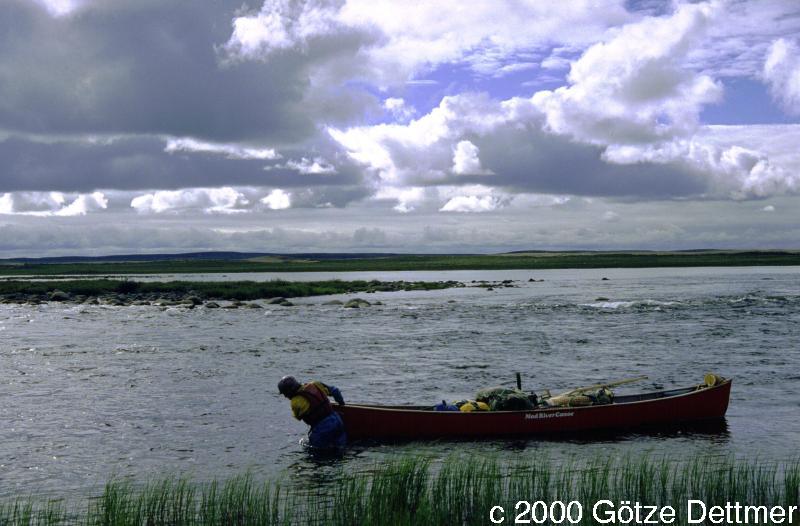
In recent years, it became easier and cheaper every year to travel the remote parts of our blue planet. We think that men passed a certain limit in this evoulution of easier access to wild places. More and more streets are build even in national parks. If there is no street, the Twin Otter or even a Helicopter brings you there.
Many of us practice leave-no-trace camping. But when it comes to wilderness-flights, we get blind. We do not reflect about that long distance bush-plane flight for a one or two week trip of paddling, we want our fun and we want it right now, without effort. But is it always necessary? Is it really alright to take a flight to a remote lodge for a five day trip and then even top it by another fly-out over a distance of ceveral hundret miles to an arctic river for just one day of char fishing? Is the northern wilderness capable to withstand wilderness-tourism?
We all use motorcraft to get to the places our passions lead us to. We do not want to judge, wether a particular flight is legitimate or not. Our intention is to show the necessity of getting away from that excessive (bush) plane use, practiced these days. We would like to encourage you to think about your flight-plans. With our trip to the Ellice River, known among insiders as accessible by float plane only, we want to demonstrate the possibility to reach even remote destinations by fair means (beside the goal to have a satisfying time out there).
As human influence spreads farther and farther, a real wilderness experience is hard to find nowadays. Even the remotest spots on our earth show signs of spoilage caused by humans. Travelling through the Northwest Territories and Nunavut, outside protected areas, you will find many signs of abuse: Oil drums in lakes and on the shores or camps spoiled with empty tins, glas and other kinds of garbage. We want to take our time to reach the remote Ellice River, we do not want to consume it like a rafttrip on some southern whitewater river. And we want to work hard for the privilege to experience this phantastic haven of nature.
The above are only a few thoughts that brought the idea of by fair means to our mind. By refering to by fair means we mean that we try to reach the rivers of our dreams by using muscle power only. Further, no alien support is allowed on the trip. This means no food or equipment drops along the way. During the whole trip, the paddlers are completely selfsustained. Trips start at a point that is accessible by road or that is accessible by schedueled air service. Some trips might end in communities which have schedueled air service. If there is no community like on the arctic coast, the nearest settlement my be reached by air-charter to get access to schedueled air service.
This way of travel means hard work and slow progress. During the first leg of a long trip we have to carry about 250 kg of equipment and food over the portages, forcing us to go at least three times with heavy packs of about 40 to 50 kg each. The canoe paddles like a freighter, and when paddling against a current, it feels like no progress at all. Ideed, sometimes, when you look at the shore with the right kind of eyes, you will see an old woman, overtaking you with a walking frame. However, the satisfaction you feel, standing at the headwaters of a remote river, knowing that you reached this river in weeks of hard work is deep and rewarding. Every meter you travel on this river is getting a whole new dimension. You travel with heart and soul!
There is an other concept that goes hand in hand with the by fair means method: Minimal impact camping. We try to leave no traces but our own footsteps in the mud. We use old fire places if we find them, otherwise, we will restore camps so no marks of fire places and the like are found. We do not mark portages or cut trails. We like the idea that the next canoeists will find nature as clean and untouched as we found it.